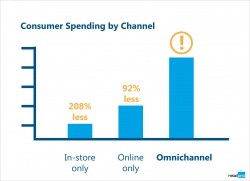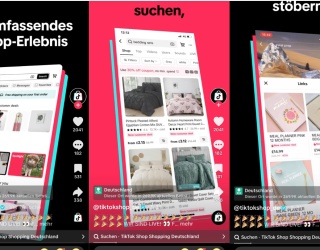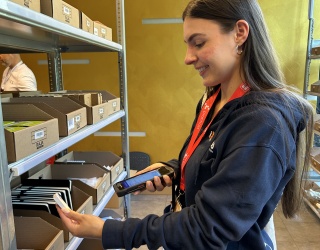While the terms of omnichannel offerings will vary between companies, successful omnichannel strategies all include 5 fundamental pieces – the fail-proof omnichannel formula.
Platform retail management technology
Platform retail management technology like Retail Pro® is mission-critical to your omnichannel strategy. It acts as the hub for all your vendor applications and integrations and organizational data. Retail Pro removes barriers between channels and gives you a unified view of all aspects of your business. Make sure the software you have is:
Designed specifically for your industry – specialization ensures a good fit and means your tech partners have expertise in your particular industry’s issues and requirements. Configurable and scalable – your IT team should have rights to tailor it to your store’s exact needs as they change over the years. Hardware-agnostic – Your operations fluctuate across seasons so you should have flexibility to use both fixed and mobile devices as needed. Your retail management platform lays the foundation for the second piece in the omnichannel formula.
Data convergence
Data convergence means the data from every customer, every application, every integration, every channel, and every store, comes together in a single repository. It is visible holistically, as if it’s data from just one store rather than hundreds. Cross-platform retail software like Retail Pro does just that: it converges the data from all your channels and devices – mobile, fixed POS, apps, and e-commerce – because it is the single solution running your whole operation.
Omnichannel sellingSeeing the dataas one whole helps you think of your business as a whole, so you can structure sales attribution in the same way. Omnichannel selling is critical: consumers shopping online only will spend 92% less than your average omnichannel shopper, and in-store-only shoppers spend 208% less!
Because omnichannel customers engage through multiple channels before finally purchasing, you’ll need a way to account for orders that, for example, originated in one of your physical stores but were finally placed online because the item wasn’t in stock. You can split commissions between online and physical channels to make sure each associate gets credit for their part in the sale.
Flexible fulfillment
Once you’re able to see all the data as one singular picture, take action to enable smarter order fulfillment from every channel. With Retail Pro, all your inventory data in one place and talks to your fulfillment tools so you can:
Create upstream supply chain partnerships for integrated vendor dropship
Convert your stores into fulfillment centers and offer flexible options like Click and Collect
Increase inventory turn by shipping from the nearest store location
Personalized customer experience
Converging your data helps track shopper behavior at every touchpoint so you can better target those omnichannel shoppers. They have a 30% higher lifetime value than one-channel shoppers, according to a 2015 study quoted by Google, so use your data to personalize engagement with that shopper in every interaction – whether it’s tailored e-marketing campaigns or clienteling on the sales floor via customer details on your mobile POS.
With these five pieces in place, you’re well on your way to optimizing how you sell across channels.
Source: Retail Pro International











